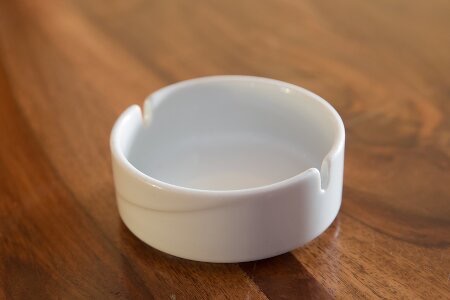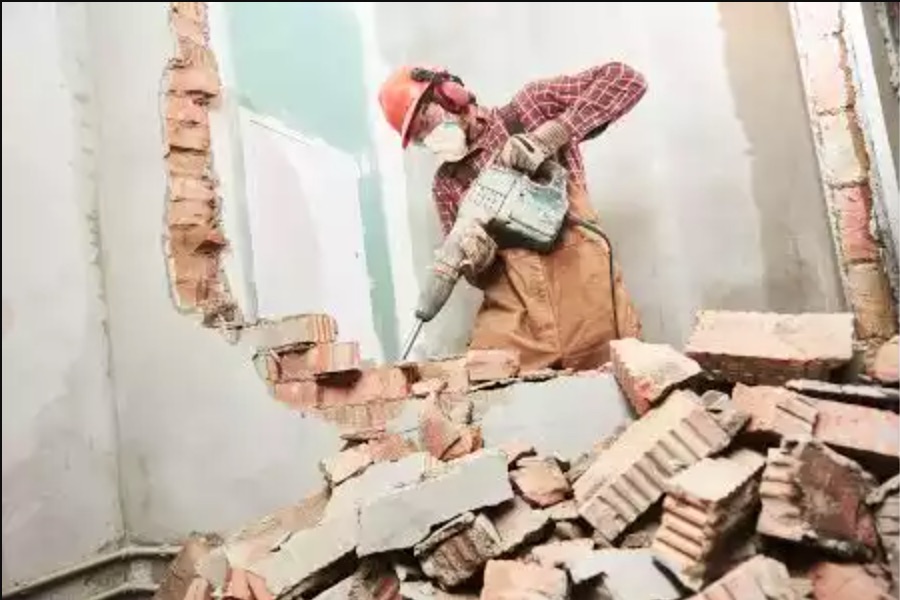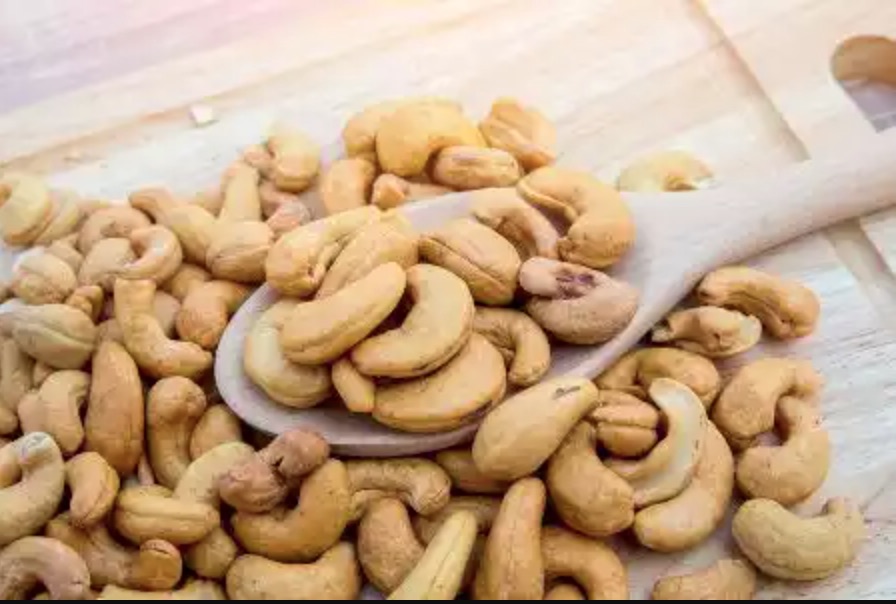*
Chúng ta phải rửa tay trước khi ăn.
We have to wash our hands before eating.
Wir müssen uns die Hände waschen, bevor wir essen.
Tenemos que lavarnos las manos antes de comer.
Nous devons nous laver les mains avant de manger.
Dobbiamo lavarci le mani prima di mangiare.
เราต้องล้างมือก่อนทานอาหาร
먹기 전에 손을 씻으십시오.
吃飯前要洗手。
吃饭 前要 洗手 。 *
Đếm xem bạn có bao nhiêu tiền mặt trong ví.
Count how much cash you have got in your wallet.
Zählen Sie, wie viel Geld Sie in Ihrer Brieftasche haben.
Cuente cuánto dinero tiene en su cartera.
Comptez combien d'argent vous avez dans votre portefeuille.
Conta quanti soldi hai nel portafoglio.
นับจำนวนเงินสดที่คุณมีในกระเป๋าเงินของคุณ
지갑에 현금이 얼마나 있는지 계산하십시오.
算一算你的錢包有多少現金?
算一算 你 的 钱包 有 多少 现金 ? *
Em gái tôi đã ra bờ biển để nhặt đá.
My younger sister has gone to the seashore to collect stones.
Meine jüngere Schwester ging an die Meeresküste, um Steine zu sammeln.
Mi hermana pequeña ha ido a la orilla del mar a recoger piedras.
Ma petite sœur est allée au bord de la mer pour ramasser des pierres.
Mia sorella minore è andata in riva al mare a raccogliere pietre.
น้องสาวของฉันไปที่ชายทะเลเพื่อเก็บหิน
내 여동생은 돌을 주우러 해변에 갔다.
妹妹去海邊撿石頭。
妹妹 去 海边 捡 石头 。 *
Cô đến quầy thu ngân thanh toán.
She goes to the cashier to pay.
Sie geht zur Kasse, um zu bezahlen.
Se dirigió al cajero para pagar.
Elle est allée à la caisse pour payer.
È andata alla cassa per pagare.
เธอเดินไปจ่ายเงินที่แคชเชียร์
그녀는 지불하기 위해 금전 등록기로 갔다.
她去收銀台付錢。
她 去 收银台 付钱 。 *
Washington là trung tâm chính trị của Mỹ.
Washington is the political center of America.
Washington ist das politische Zentrum Amerikas.
Washington es el centro político de América.
Washington est le centre politique de l'Amérique.
Washington è il centro politico d'America.
วอชิงตันเป็นศูนย์กลางทางการเมืองของอเมริกา
워싱턴은 미국의 정치 중심지입니다.
華盛頓是美國的政治中心。
华盛顿 是 美国 的 政治 中心 。 *
Sọt rác đầy rác.
The wastebasket is full of trash.
Der Mülleimer ist voller Müll.
La papelera está llena de basura.
La corbeille à papier est pleine d'ordures.
Il cestino è pieno di spazzatura.
ถังขยะเต็มไปด้วยขยะ
쓰레기통은 쓰레기로 가득 차 있습니다.
垃圾箱裡裝滿了廢物。
垃圾箱 里 装满 了 废物 。 *
Tóc nhuộm đã trở thành mốt bây giờ.
Dying hair has become fashionable now.
Haare zu färben ist jetzt Mode.
El pelo teñido se ha puesto de moda.
Se teindre les cheveux est devenu à la mode maintenant.
La morte dei capelli è diventata di moda ora.
ผมที่กำลังจะตายกลายเป็นแฟชั่นไปแล้ว
이제 머리를 염색하는 것이 유행입니다.
現在時興染髮。
现在 时兴 染发 。 *
Tôi đang rửa đĩa.
I am washing the plates.
Ich wasche die Teller ab.
Estoy lavando los platos.
Je lave les assiettes.
Sto lavando i piatti.
ฉันกำลังล้างจาน
나는 설거지를 하고 있다.
我在洗盤子。
我 在 洗 盘子 。 *
Cô ấy đang gội đầu.
She is washing her hair.
Sie wäscht sich die Haare.
Se está lavando el pelo.
Elle se lave les cheveux.
Si sta lavando i capelli.
เธอกำลังสระผม
그녀는 그녀의 머리를 씻고 있습니다.
她在沖洗頭髮。
她 在 冲洗 头发 。 *
Những người trẻ cố gắng trở nên hợp thời trang (thắp sáng, "theo đuổi thời trang hiện
Young people try to be trendy (lit., "pursue the current fashion").
Junge Leute versuchen, trendy zu sein (wörtlich "die aktuelle Mode verfolgen").
Los jóvenes intentan estar a la última (lit., "seguir la moda actual").
Les jeunes essaient d'être à la mode (littéralement, "suivre la mode actuelle").
I giovani cercano di essere trendy (lett. "Inseguire la moda attuale").
คนหนุ่มสาวพยายามที่จะอินเทรนด์ (จากคำว่า "ไล่ตามแฟชั่นปัจจุบัน")
젊은이들은 패션을 추구합니다.
年輕人追求時尚。
年轻人 追求 时尚 。 *
Mẹ đang giúp tôi gội đầu.
Mother is helping me wash my hair.
Mutter hilft mir, meine Haare zu waschen.
Mamá me está ayudando a lavarme el pelo.
Maman m'aide à me laver les cheveux.
La mamma mi sta aiutando a lavarmi i capelli.
แม่กำลังช่วยฉันสระผม
엄마가 머리를 감고 있어요.
媽媽在幫我洗頭。
妈妈 在 帮 我 洗头 。 *
Giao thông trên đường cao tốc đang diễn ra một cách trật tự.
Traffic on the highway is proceeding in an orderly fashion.
Der Verkehr auf der Straße ist gut geregelt.
El tráfico en la autopista avanza de forma ordenada.
La circulation sur l'autoroute se déroule de manière ordonnée.
Il traffico in autostrada procede in modo ordinato.
การจราจรบนทางหลวงเป็นไปอย่างเป็นระเบียบ
고속도로의 교통 흐름은 좋습니다.
公路上的交通次序良好。
公路 上 的 交通 次序 良好 。 *
Người ta có thể rút tiền mặt từ máy ATM bằng thẻ.
One can withdraw cash from an ATM machine using a card.
Mit der ATM-Karte kann man Geld abheben.
Se puede sacar dinero de un cajero automático con una tarjeta.
On peut retirer de l'argent à un distributeur automatique en utilisant une carte.
Si può prelevare contanti da un bancomat utilizzando una carta.
สามารถถอนเงินสดจากเครื่องเอทีเอ็มโดยใช้บัตร
ATM은 카드로 돈을 인출합니다.
ATM憑卡取錢。
ATM 凭卡取 钱 。 *
Tôi thích khoai tây nghiền.
I like mashed potatoes.
Ich mag Kartoffelpüree.
Me gusta el puré de patatas.
J'aime la purée de pommes de terre.
Mi piace il purè di patate.
ฉันชอบมันฝรั่งบด
나는 으깬 감자를 먹는 것을 좋아합니다.
我愛吃土豆泥。
我 爱 吃 土豆泥 。 *
Họ lái xe đến Washington.
They drive to Washington.
Sie fahren nach Washington.
Conducen hasta Washington.
Ils vont à Washington en voiture.
Guidano a Washington.
พวกเขาขับรถไปวอชิงตัน
그들은 워싱턴으로 차를 몰았다.
他們驅車前往華盛頓。
他们 驱车 前往 华盛顿 。 *
Cô ấy tạt nước vào mặt.
She splashed water onto her face.
Sie spritzt sich Wasser ins Gesicht.
Se ha salpicado la cara con agua.
Elle s'est aspergée d'eau sur le visage.
Si è spruzzata dell'acqua sul viso.
เธอสาดน้ำใส่หน้า
그녀는 얼굴에 물을 뿌렸다.
她往臉上潑水。
她 往 脸上 泼水 。 *
Anh ta đã hoàn trả khoản vay của mình bằng tiền mặt.
He repays his loan in cash.
Er zahlt sein Darlehen in bar zurück.
Pagó su préstamo en efectivo.
Il a remboursé son prêt en espèces.
Ha rimborsato il prestito in contanti.
เขาชำระคืนเงินกู้เป็นเงินสด
그는 대출금을 상환하기 위해 현금을 사용했습니다.
他用現金來償還貸款。
他 用 现金 来 偿还 贷款 。 *
Cô ấy muốn đập vỡ máy tính của mình.
She wants to smash the computer.
Sie will den Computer zertrümmern.
Le gustaría destrozar su ordenador.
Elle aimerait bien casser son ordinateur.
Vorrebbe distruggere il suo computer.
เธอต้องการทุบคอมพิวเตอร์ของเธอ
그녀는 컴퓨터를 부수고 싶었다.
她想把電腦給砸了。
她 想 把 电脑 给 砸 了 。 *
Cô ấy xấu hổ vì kết quả học tập kém của mình.
She is ashamed of her poor school performance.
Sie schämt sich für ihre schlechten schulischen Leistungen.
Se avergüenza de su bajo rendimiento académico.
Elle a honte de ses mauvais résultats scolaires.
Si vergogna del suo scarso rendimento scolastico.
เธอรู้สึกละอายใจกับผลการเรียนที่แย่ของเธอ
그녀는 학업 성적이 좋지 않은 것을 부끄러워했습니다.
學習成績差,她感到很羞恥。
学习成绩 差 , 她 感到 很 羞耻 。 *
Anh ấy cảm thấy xấu hổ.
He feels ashamed.
Er schämt sich.
Se siente avergonzada.
Il a honte.
Si vergogna.
เขารู้สึกละอายใจ
그는 부끄러워했다.
他感到羞愧。
他 感到 羞愧 。 *
Cô ấy cảm thấy rất xấu hổ.
She feels very ashamed.
Sie schämt sich sehr.
Se siente muy avergonzada.
Elle se sent très honteuse.
Si vergogna molto.
เธอรู้สึกละอายใจมาก
그녀는 매우 부끄러워했습니다.
她感到很羞愧。
她 感到 很 羞愧 。 *
Anh ta đang đếm tiền.
He is counting the cash.
Er zählt das Geld.
Está contando el dinero en efectivo.
Il est en train de compter l'argent.
Sta contando i soldi.
เขากำลังนับเงินสด
그는 지폐를 세고 있다.
他在數鈔票。
他 在 数 钞票 。 *
Cô ấy đang vo gạo.
She is washing the rice.
Sie wäscht den Reis.
Está lavando el arroz.
Elle lave le riz.
Sta lavando il riso.
เธอกำลังล้างข้าว
그녀는 쌀을 씻고 있습니다.
她在淘米。
她 在 淘米 。 *
Họ giặt và phơi quần áo trong tiệm giặt là.
They wash and starch clothes in the laundry.
Sie waschen und stärken Kleidung in der Wäsche.
Lavan y almidonan la ropa en la lavandería.
Ils lavent et amidonnent les vêtements dans la buanderie.
Lavano e inamidano i vestiti nella lavanderia.
พวกเขาซักและรีดเสื้อผ้าในเครื่องซักผ้า
세탁소에서 옷을 후루룩 할 수 있습니다.
洗衣店可以漿洗衣服。
洗衣店 可以 浆洗 衣服 。 *
Máy bay sắp bị rơi.
The plane is about to crash.
Das Flugzeug ist kurz vor dem Absturz.
El avión está a punto de estrellarse.
L'avion est sur le point de s'écraser.
L'aereo sta per schiantarsi.
เครื่องบินกำลังจะตก
비행기가 추락하려고 합니다.
飛機快要墜落了。
飞机 快要 坠落 了 。 *
Bánh căm của chiếc ô tô bị hư hỏng trong vụ va chạm.
The wheel spokes of the car were damaged in the crash.
Die Radspeichen des Autos wurden bei dem Unfall beschädigt.
Los radios de las ruedas del coche se dañaron en el accidente.
Les rayons de la roue de la voiture ont été endommagés dans l'accident.
I raggi delle ruote dell'auto sono stati danneggiati nell'incidente.
ซี่ล้อของรถได้รับความเสียหายจากการชน
자동차의 스포크가 손상되었습니다.
汽車的輻條被撞壞了。
汽车 的 辐条 被 撞坏 了 。 *
Cô ấy ăn mặc rất thời trang.
She is very fashionably dressed.
Sie ist sehr modisch gekleidet.
Ella está vestida muy a la moda.
Elle est habillée très à la mode.
È vestita molto alla moda.
เธอแต่งตัวตามแฟชั่นมาก
그녀의 드레스는 매우 유행입니다.
她的打扮很時髦。
她 的 打扮 很 时髦 。 *
Những con ngựa đua lướt qua chúng tôi trong nháy mắt.
The race horses run past us in a flash.
Die Rennpferde rennen blitzschnell an uns vorbei.
Los caballos de carreras pasan corriendo junto a nosotros en un instante.
Les chevaux de course passent devant nous en un éclair.
I cavalli da corsa ci superano in un lampo.
ม้าแข่งวิ่งผ่านเราในพริบตา
순식간에 경마가 달려왔다.
賽馬霎時跑過去了。
赛马 霎时 跑 过去 了 。 *
Tôi rửa tay bằng xà phòng.
I wash my hands with soap.
Ich wasche meine Hände mit Seife.
Me lavo las manos con jabón.
Je me lave les mains avec du savon.
Mi lavo le mani con il sapone.
ฉันล้างมือด้วยสบู่
나는 비누로 손을 씻습니다.
我用肥皂洗手。
我用 肥皂 洗手 。 *
Cô ấy đang giặt quần áo.
She is washing the clothes.
Sie wäscht die Kleidung.
Ella está lavando la ropa.
Elle lave les vêtements.
Sta lavando i vestiti.
เธอกำลังซักผ้า
그녀는 옷을 닦고 있다.
她正在搓洗衣服。
她 正在 搓洗 衣服 。
| |
|
| SAIGONESE |
|---|
| E117 |  gội đầu gội đầu |  wash hair wash hair |  Haare waschen Haare waschen |
|
| E124 |  rửa rửa |  wash wash |  waschen waschen |
|
| E209 |  rửa chén rửa chén |  wash dishes wash dishes |  Geschirr spülen Geschirr spülen |
|
| E209 |  giặt đồ giặt đồ |  wash clothes wash clothes |  Wäsche waschen Wäsche waschen |
|
| E004 |  giặt giặt |  wash (clothes) wash (clothes) |  waschen (Kleidung) waschen (Kleidung) |
|
| E040 |  rửa rửa |  wash wash |  waschen waschen |
|
| E058 |  bể bể |  smashed smashed |  zerschlagen zerschlagen |
|
| E072 |  hốt rác hốt rác |  pick up trash pick up trash |  Müll aufsammeln Müll aufsammeln |
|
| E104 |  gội đầu gội đầu |  wash hair wash hair |  Haare waschen Haare waschen |
|
| E143 |  giặt giặt |  wash wash |  waschen waschen |
|
| I046 |  đụng đụng |  hit, crash hit, crash |  Treffer, Absturz Treffer, Absturz |
|
| I047 |  làm bể làm bể |  smash into pieces smash into pieces |  in Stücke zerschlagen in Stücke zerschlagen |
|
| I060 |  thùng rác thùng rác |  trash can trash can |  Mülleimer Mülleimer |
|
| I060 |  giặt giặt |  wash (clothes) wash (clothes) |  waschen (Kleidung) waschen (Kleidung) |
|
| I092 |  bị nổi mẩn đỏ bị nổi mẩn đỏ |  have a rash have a rash |  einen Ausschlag haben einen Ausschlag haben |
|
| I113 |  tiền mặt tiền mặt |  cash cash |  Bargeld Bargeld |
|
| I163 |  rửa chén rửa chén |  wash dishes wash dishes |  Geschirr spülen Geschirr spülen |
|
| I208 |  rửa mặt rửa mặt |  wash face wash face |  Gesicht waschen Gesicht waschen |
|
| I006 |  tông tông |  crash into crash into |  Absturz in Absturz in |
|
| I016 |  người lấy rác người lấy rác |  trash collector trash collector |  Müllsammler Müllsammler |
|
| I043 |  thùng rác thùng rác |  trashcan trashcan |  Mülleimer Mülleimer |
|
| I105 |  tông vô tông vô |  crash into crash into |  Absturz in Absturz in |
|
102 先ず: first of all, to begin with: When you get home, wash your hands first. 241 石鹸: soap: Please wash your hands with soap. 921 下着: underwear: I wash my underwear by hand. 972 ぶつかる: hit, bump into: The car crashed into the telephone pole. 980 現金: cash: Please pay in cash. 1194 ビニール: plastic, vinyl: Please put trash in that plastic bag. 1403 洗面所: washroom, bathroom: She washed her face in the washroom. 1404 洗う: wash: Hurry and wash your face. 1670 キャッシュカード: cash card: I withdrew some money with my cash card. 1743 刺身: sliced raw fish or meat: I don't eat sashimi. 1803 洗濯機: washing machine, washer: I bought a new washing machine. 1817 灰皿: ashtray: Please give me an ashtray. 1818 灰: ashes: Everything turned into ashes in the fire. 2062 洪水: flood: Many houses were washed away in the flood. 2776 都: capital, city: Milan is the capital of fashion. 2948 ファッション: fashion: She's a fashion expert. 3250 わさび: Japanese horseradish: Wasabi is indispensable to sashimi. 3355 まぐろ: tuna: I ate tuna sashimi. 3515 イカ: squid: I love squid sashimi. 3898 旅客機: passenger plane: A passenger plane crashed. 4441 墜落: fall, crash: There was a plane crash. 4447 流行: fashion, trend (rather casual): These clothes are in fashion now. 4448 流行: fashion, trend: This style is in fashion this year. 4463 手洗い: washing hands: Make sure you wash your hands and gargle to avoid a cold. 4466 洗面器: washbowl: I washed my handkerchief in a washbowl. 4667 帯: belt, sash: This sash is too long. 4900 縮める: reduce (time, size etc.), shorten: He slashed one second off the record. 4927 札: bill, paper money: He took a bundle of cash out of his bag. 5152 まな板: chopping board: I washed the chopping board after cutting fish. 5189 液体: liquid, fluid: I use liquid detergent for washing clothes. 5783 じゃぶじゃぶ: splashing, washing: He washed his face vigorously. 5938 潰れる: be squashed, be smashed: The corner of the box is squashed. 6175 間に合わせ: makeshift: I submitted the hashed-together report. 6308 店開き: opening of a business: My older sister is opening a fashion boutique next month. 6486 中性: neuter gender: Please wash these clothes with detergent. 6601 旧式: old style; old type: I saw an old-fashioned telephone for the first time in a long time. 6740 化石: fossil: There are a lot of fossil seashells around here. 6978 日和: fine weather; weather: It is perfect weather for washing today. 7602 流し: cruising taxi; sink: Please wash the plates in the sink. 7784 上陸: disembarkation; landing: It has been three months since they came ashore. 7892 堆積: accumulation; pile: There are large volcanic ash deposits on the island. 8109 稲妻: lightning: Lightning flashed. 8150 恥じる: feel ashamed: There is no need to be ashamed of mistakes. 8564 点滅: flashing; flickering: Please stop when the signal is flashing. 8590 威勢: dash; power: He is a dashing young man. 8630 無謀: recklessness: I think his plan is rash. 8684 浸す: drench; soak: Soak dirty clothes in water before washing. 9205 善くも: how dare: I can't believe that you say such a thing unashamedly. 9331 凹む: become hollow; get dented; sink: I dented the bumper when I crashed my car. 9453 裾: bottom; hem: Mud splashed onto the hem of my pants. 9476 閃く: flash: I had a flash of inspiration. 9484 鰯: sardine: Did you ever eat sardine sashimi? | TED Talk | Segment | Vietnamese | English | |









 ash: (solid remains of a fire)
ash: (solid remains of a fire) Asche {f}
Asche {f} 























 gội đầu
gội đầu  Haare waschen
Haare waschen